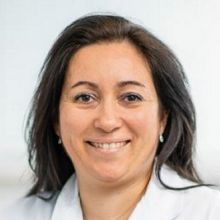
« Providing comprehensive care for the patient is important for our multidisciplinary team but equally important is providing it without delay ... »
How we treat ENT cancers of the head and neck
Head and neck cancers include all tumours that develop in the upper aerodigestive tract and ENT (ear, nose and throat) system: tongue, cheek, palate, nose, sinuses, salivary glands, larynx, pharynx, etc.
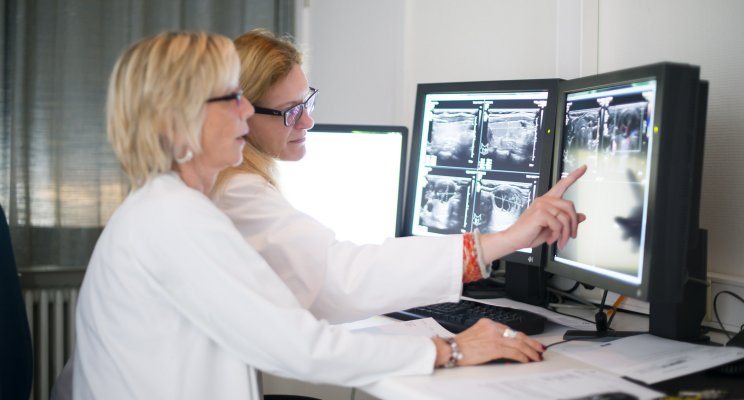
The first consultation will involve a detailed clinical examination known as a fibre optic endoscopy. In this examination, the doctor uses a fine, flexible tube fitted with a minicamera to view the inside the nose, mouth and throat.
A biopsy is taken from the area concerned or from a lymph gland situated close to the tumour. These samples are then analysed in the laboratory by a pathologist to see whether there are any cancer cells present.
To assess the tumour and see whether it has spread in the body, the patient will undergo medical imaging examinations: cervicofacial CT scan, MRI, PET scan, bronchoscopy, oesogastroscopy, etc.
Radiotherapy, surgery and chemotherapy are the 3 conventional approaches to treating ENT cancers. Depending on the stage of the disease, these treatments may be offered alone, in succession or simultaneously.
The Institut Bordet was one of the first centres to develop Intensity-Modulated Radiation Therapy (IMRT). This involves delivering different doses of radiation to ensure optimal sparing of the healthy surrounding tissue.
In terms of surgery, procedures are less major and less extensive than they were in the past. Sophisticated maxillo-facial reconstruction techniques have also been developed. They are an integral part of patient care.
ENT cancers affect essential functions such as breathing, speaking and/or eating. The Institut Bordet therefore places a great deal of importance on complementary and adjuvant care:
- Nutritional supervision is systematically put in place before, during and after oncology treatments
- A team of specialist speech therapists takes care of any problems with swallowing and/or speech
- Help to quit smoking is offered as tobacco, along with alcohol, are key risk factors for ENT cancers
- Low level laser therapy may be indicated in cases of mucositis (mucosal inflammation of the mouth).
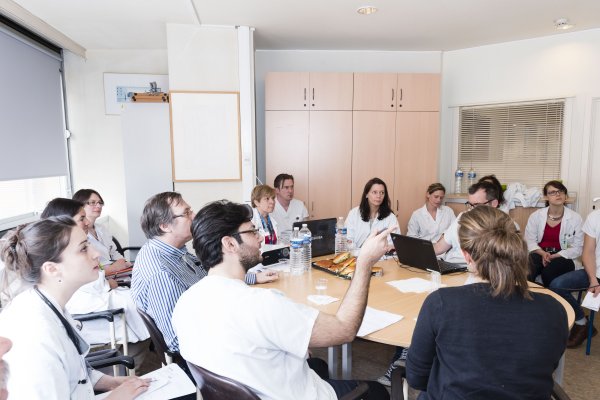
The Institut Bordet Cervicofacial Tumour Multidisciplinary Cancer Care Team (CMO) meets every week to discuss the situation of each patient, whether newly diagnosed or already under their care. This team includes a medical oncologist, radiotherapist, maxillo-facial surgeon, pathologist, dietitian, speech therapist, geriatric oncologist, stomatologist, cancer psychologist and a cancer care nurse coordinator (ICSO).
Their aim is to offer effective treatments while seeking to preserve the best quality of life and autonomy for patients.
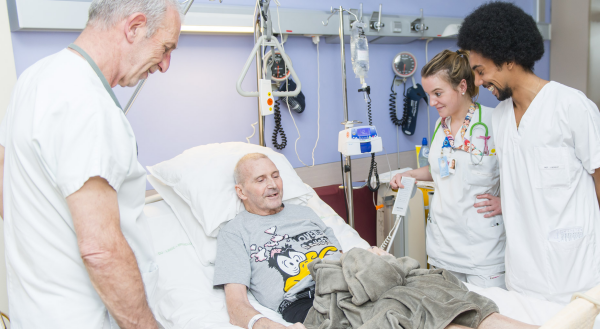
The Institut Jules Bordet's nurses, most of whom specialise in oncology, are committed to caring for patients with thought, humanity and professionalism.
Their role does not stop at care and treatment follow-up; they also meet families, and try to be as available as possible and by patients' sides while being attentive to everything confided in them. The role of education, information and support is an integral part of their profession.
They must have relational, technical and scientific skills in line with the gravity and the complexity of the cancerous pathology. The nurses are particularly attentive to the treatment of pain and other symptoms resulting from cancer treatment.
They also focus on their role as trainers to welcome and supervise students, and give them incentive to practice the profession in the best possible conditions.
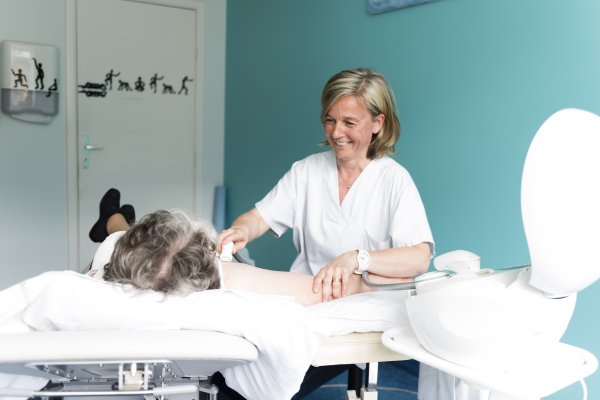
With the medical teams, many other healthcare professionals support the patients. They are dedicated to help patients in managing their illness and treatments, and to promote their wellbeing..
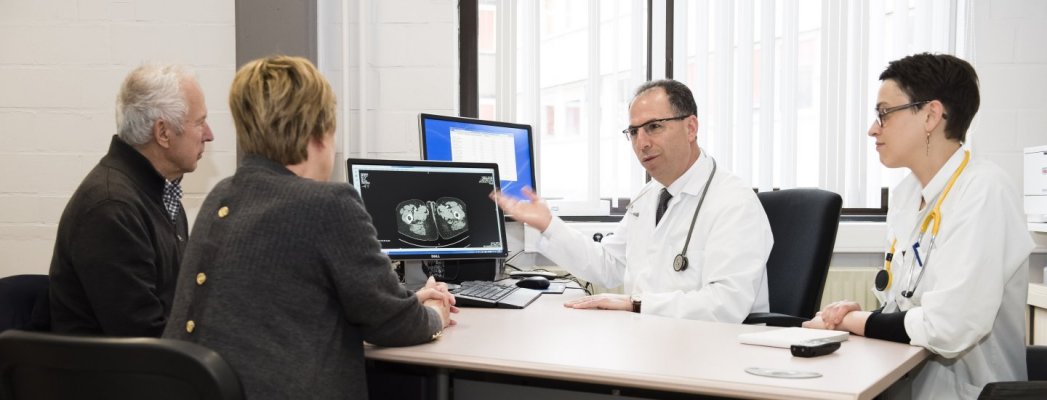
Every year many patients want to request a second medical opinion from our multidisciplinary teams.
Not all the doctors and hospitals will necessarily have the expertise, experience and/or equipment needed for an optimal approach to all types of cancer. At the Jules Bordet Institute this is our job! Requesting a second medical opinion is therefore often useful and reassuring for the patient. This is especially true in the case of rare cancers and/or cancers requiring complex or innovative treatment.
- To request a second opinion for a ENT cancer: Tel: +32 (0)2 541 34 47
- To find out more about a second opinion, see our page "second opinion"
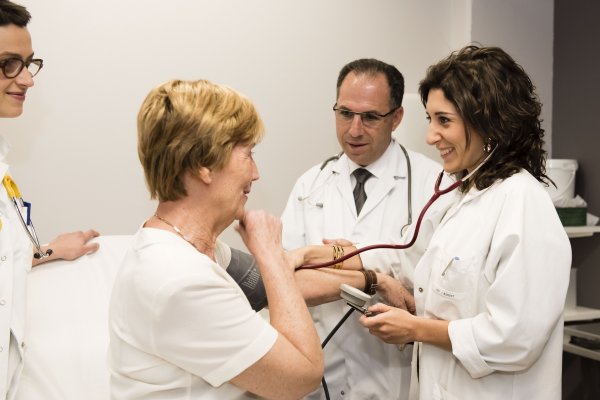
The aims of post-cancer care are multiple:
- to keep an eye on the physical and psychological state of the patient
- to manage any medium or long-term secondary effects of certain treatments
- to detect any recurrence as soon as possible
- to identify any new cancer.
Recurrence means that cancer cells reappear after a period of remission that can vary from a few months to several years. It can also happen that the same patient develops different cancers several years apart. In all these cases, the earlier a recurrence or cancerous disease is detected, the faster a new therapeutic strategy can be offered.